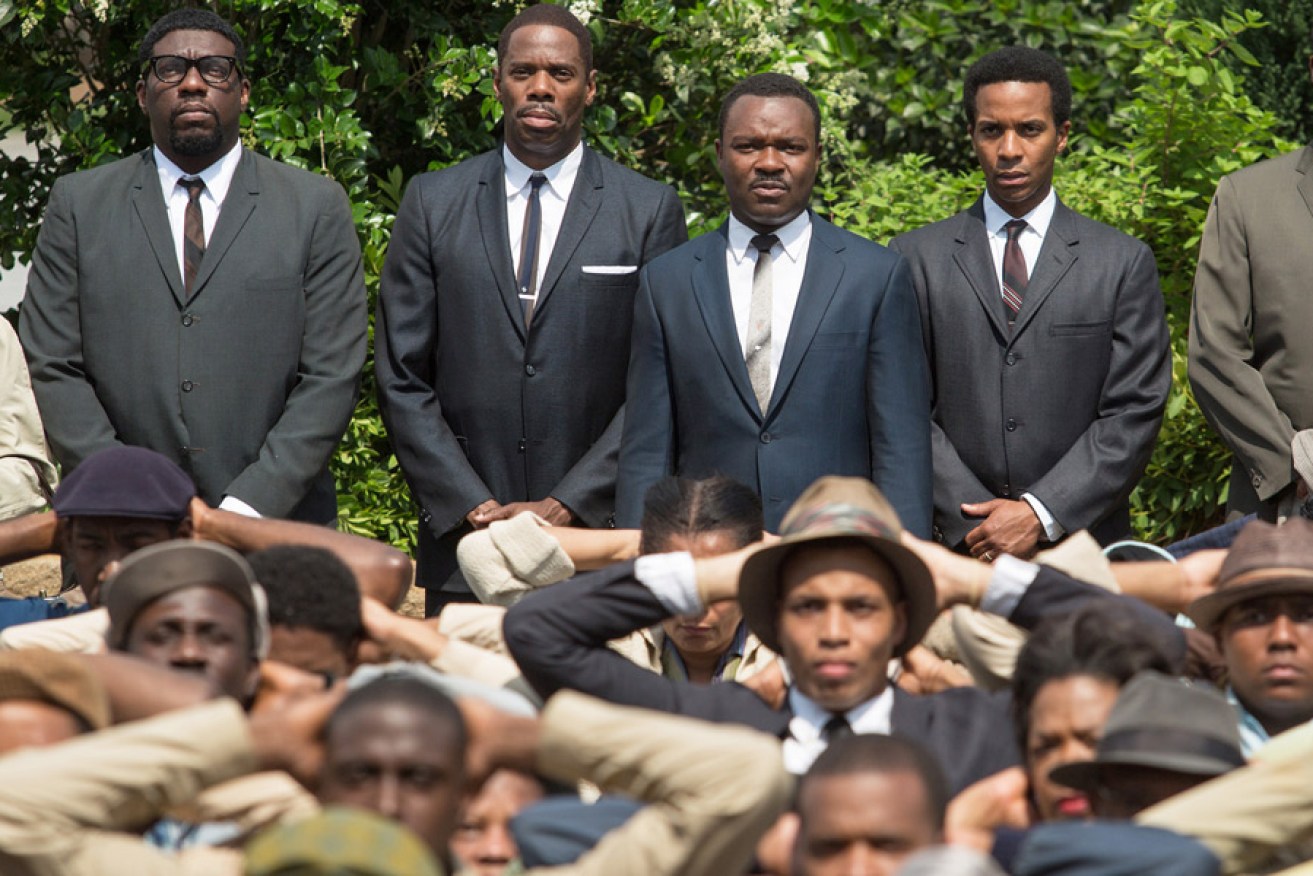These are challenging times for the United States.
Riots broke out across the country in late 2014, chiefly in response to white police officers killing unarmed black citizens. Meantime, as he entered his last two years in office, Democrat President Barack Obama was pretty much stymied by fresh Republican majorities in both houses of Congress. And still, despite the prestige and power attached to the Presidency, the first African-American President continues to endure racist jibes from the sidelines.
The Civil Rights Act of 1964 officially ended segregation in the US. Later that year, Dr Martin Luther King was awarded the Nobel Peace Prize in recognition of his efforts to defeat racial inequality. Nonetheless, this did little to change the views of racist US citizens and local officials, who resorted to petty legalities and outright violence to continue frustrating African-Americans’ basic civil liberties, such as the right to vote.
Selma tells the story of a signal episode in US race relations, which occurred in 1965 when King led a series of protests in the town of Selma, Alabama. In the face of extreme local provocation, and obduracy by President Lyndon Johnson, the film shows King and his supporters maintaining their patience, dignity and pacifism until the Selma protests forced Johnson to act.
It’s a slow, serious story in which King, played by British-born David Oyelowo, is never seen to smile. But the plot leaves an indelible impression of African-Americans’ struggle for justice and the inner workings of the civil rights movement.
In particular, the pall of doom that hangs around King’s family is persuasively evoked by another British-born actor, Carmen Ejogo, who plays his wife, Coretta Scott King. Other notable performances in a fine ensemble effort are delivered by two more Brits: Tom Wilkinson as Johnson and Tim Roth as George Wallace, the Alabama Governor.
Selma is not a fast-paced, self-righteous shoot ‘em up like another current bio-pic, American Sniper. Yet, if the much-lauded “American sniper”, Chris Kyle, could enthusiastically describe Muslims as “savages”, I’m not convinced Americans’ attitudes towards race have changed much in 50 years.
The fact that American Sniper has already earned six times as much in the US as Selma is probably all we need to know right now about current values.





